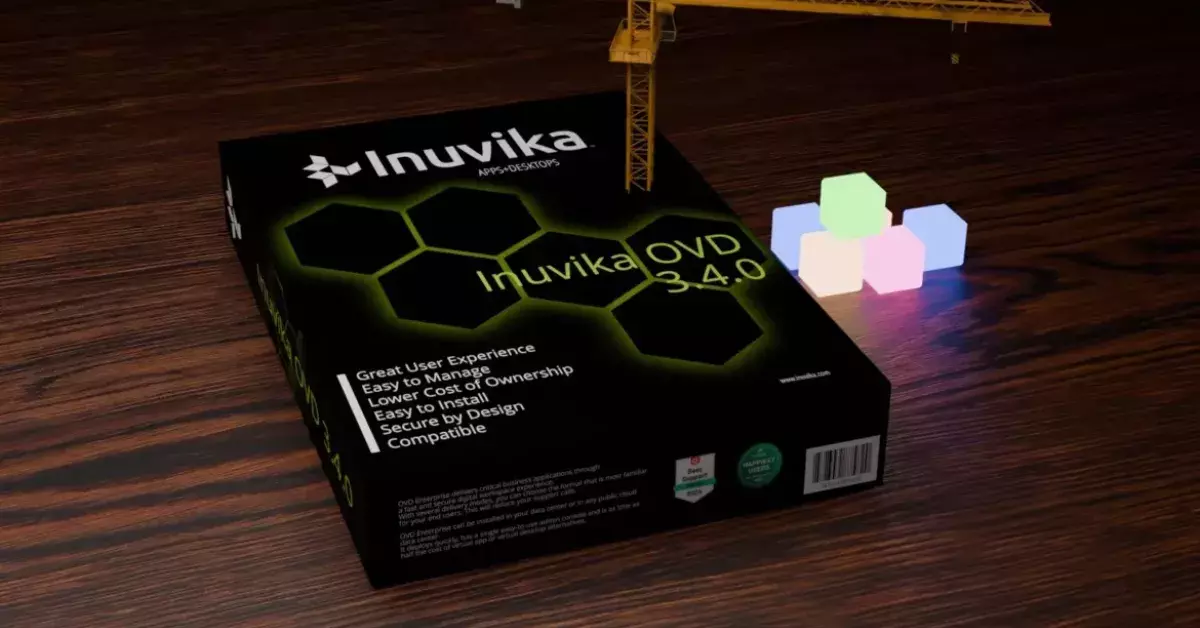Minimum System Requirements
OVD Server Components |
OVD Session Manager (OSM) |
All of the following Operating Systems are supported:
RHEL 7.x and 8.x / Centos 7.x 64 bit Ubuntu 18.04 LTS server (Bionic Beaver) 64 bit Ubuntu 22.04 LTS server (Jammy Jellyfish) 64 bit Minimum hardware configuration: CPU: 2 Cores recommended as a minimum Memory: 4 GB recommended as a minimum Storage: 20 GB Network: 1 GB NIC (2 for failover) |
| OVD Application Server on Windows |
All of the following Operating Systems are supported:
Windows Server 2012 R2 (64 bit) with Remote Desktop Services (***Microsoft Extended Support contract required) Windows Server 2016 with Remote Desktop Services Windows Server 2019 with Remote Desktop Services Windows Server 2022 with Remote Desktop Services Windows 10 Desktop Image (One-to-One) Windows 11 Desktop Image (One-to-One) Windows 10 Multi User Image (Azure Only) Windows 11 Multi User Image (Azure Only) Minimum hardware configuration: CPU: 4 cores recommended as a minimum Memory: 8 GB recommended as a minimum Storage: 50+ GB. High speed disks with RAID-1 (15k rpm, SSDs or SAN disks) Network: 1 GB NIC |
|
| OVD Application Server on Linux |
All of the following Operating Systems are supported:
RHEL 7.x and 8.x / Centos 7.x 64 bit Ubuntu 18.04 LTS server (Bionic Beaver) 64 bit Ubuntu 22.04 LTS server (Jammy Jellyfish) 64 bit Minimum hardware configuration: CPU: 4 cores recommended as a minimum Memory: 8 GB recommended as a minimum Storage: 50+ GB. High speed disks with RAID-1 (15k rpm, SSDs or SAN disks) Network: 1 GB NIC |
|
| OVD Web Access (OWA) |
All of the following Operating Systems are supported:
RHEL 7.x and 8.x / Centos 7.x 64 bit Ubuntu 18.04 LTS server (Bionic Beaver) 64 bit Ubuntu 22.04 LTS server (Jammy Jellyfish) 64 bit Minimum hardware configuration: CPU: 2 cores recommended as a minimum Memory: 4 GB recommended as a minimum Storage: 20 GB Network: 1 GB NIC (2 for failover) |
|
| OVD File Server (OFS) |
All of the following Operating Systems are supported:
RHEL 7.x and 8.x / Centos 7.x 64 bit Ubuntu 18.04 LTS server (Bionic Beaver) 64 bit Ubuntu 22.04 LTS server (Jammy Jellyfish) 64 bit Minimum hardware configuration: CPU: 2 cores (4 cores recommended) Memory: 2 GB (4 GB recommended) Storage: 100+ GB. High speed disks with RAID-1 (15k rpm, SSDs or SAN disks) Network: 1 GB NIC |
|
| Enterprise Secure Gateway (ESG) |
All of the following Operating Systems are supported:
RHEL 7.x and 8.x / Centos 7.x 64 bit Ubuntu 18.04 LTS server (Bionic Beaver) 64 bit Ubuntu 22.04 LTS server (Jammy Jellyfish) 64 bit Minimum hardware configuration: CPU: 2 cores (4 cores recommended) Memory: 4 GB recommended as a minimum Storage: 20+ GB Network: 1 GB NIC |
|
Enterprise Mobile & Desktop Clients |
Desktop Client (EDC) |
Operating System:
Linux Desktop (x86 or AMD64) Apple OSX 10.11 and up (Intel) Windows 7, 8, 8.1 and 10, 11 (x86 or AMD64) Minimum hardware configuration: A CPU with 2 cores and a clock speed of 2.2 GHz or higher 1 GB RAM Disk space: 300 MB of free space |
|
Operating System:
Stratodesk NoTouch OS Minimum hardware configuration: Raspberry Pi 3B or later thin clients with ARM processors and 1GB RAM Thin client devices that use the Stratodesk NoTouch OS. Operating System: IGEL OS Minimum hardware configuration: x86/AMD64 compatible devices running IGEL OS and supported by iGel. |
||
| Smart Card Support | Smart cards may be used by published applications to provide additional authentication functionality within an OVD session. Support for smart cards is provided for Windows OAS servers only. The EDC works with PC/SC or PC/SC Lite smart card readers. You must install the required driver to support the type of smart card in use from one of several open-source or commercial third-party providers. Compatible smart cards devices are supported on Windows, Ubuntu and macOS clients running the EDC. | |
| Multimedia |
Video support:
The EDC supports the RemoteFX Adaptive Graphics and RemoteFX Progressive Codec, AVC444/AVC444v2 and RemoteFX for WAN (TCP only) on Windows Application Servers. Video and audio synchronization is supported on Windows clients. Audio support: The EDC also supports audio in using the built-in microphone or microphones connected using the audio input or usb when connected to Windows Application Servers. The EDC supports audio out on Linux and Windows Application servers. The EDC supports the PCM and ADPCM audio codecs. |
|
| Mobile Client (EMC) |
EMC clients are provided for Android, Chromebook*, and iOS devices. The EMC client can only be used in desktop mode. The EMC is available on Google Play for Android and the Apple Store for iOS.
Operating System: iOS 13.0 and higher Android 5 and higher ChromeOS v61 and higher* |
|
Web Access Client |
Windows |
Firefox - latest version
Chrome - latest version |
| macOS |
Firefox - latest version
Chrome - latest version Safari - latest version |
|
| Linux |
Firefox - latest version
Chrome - latest version |


